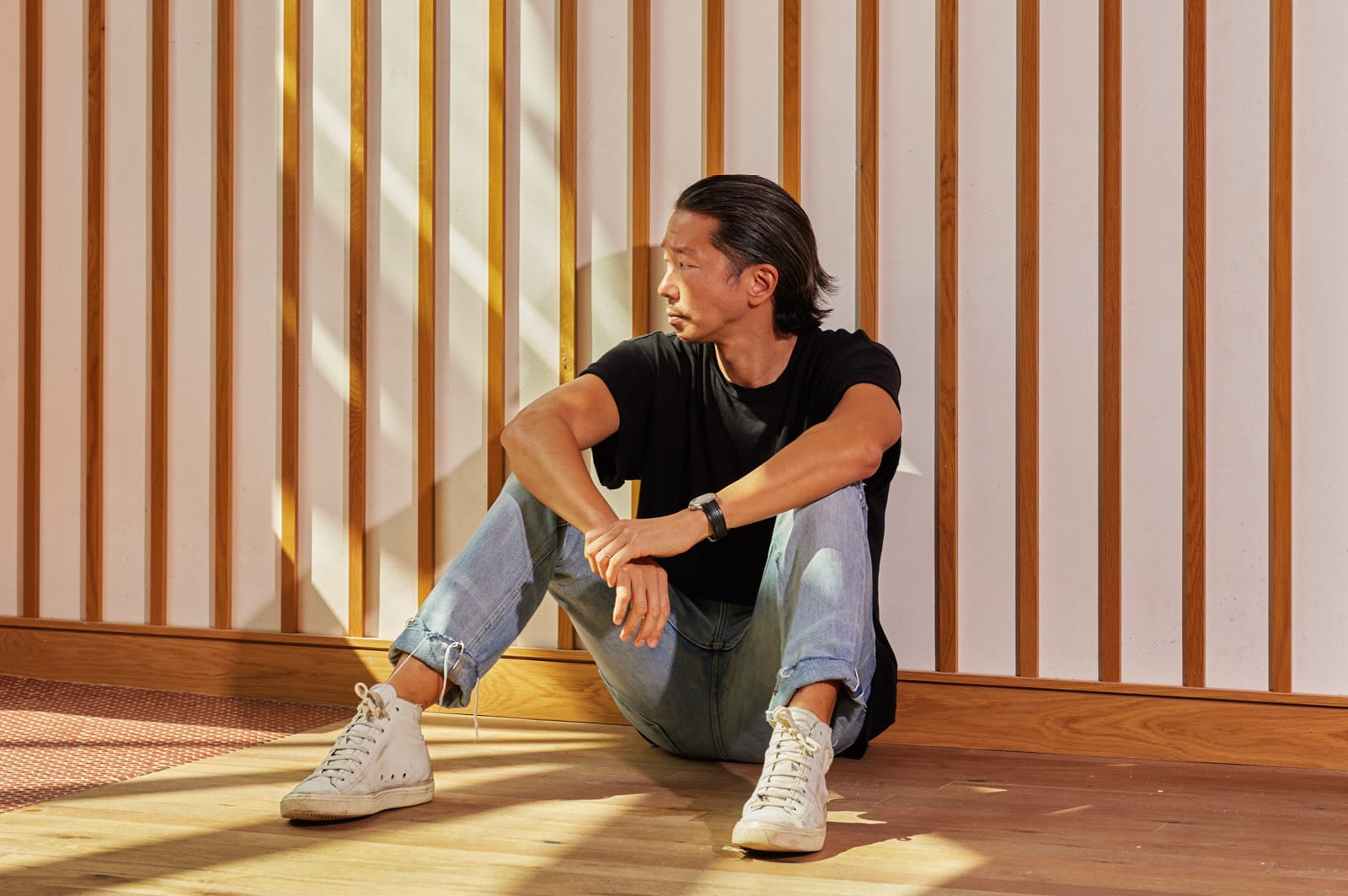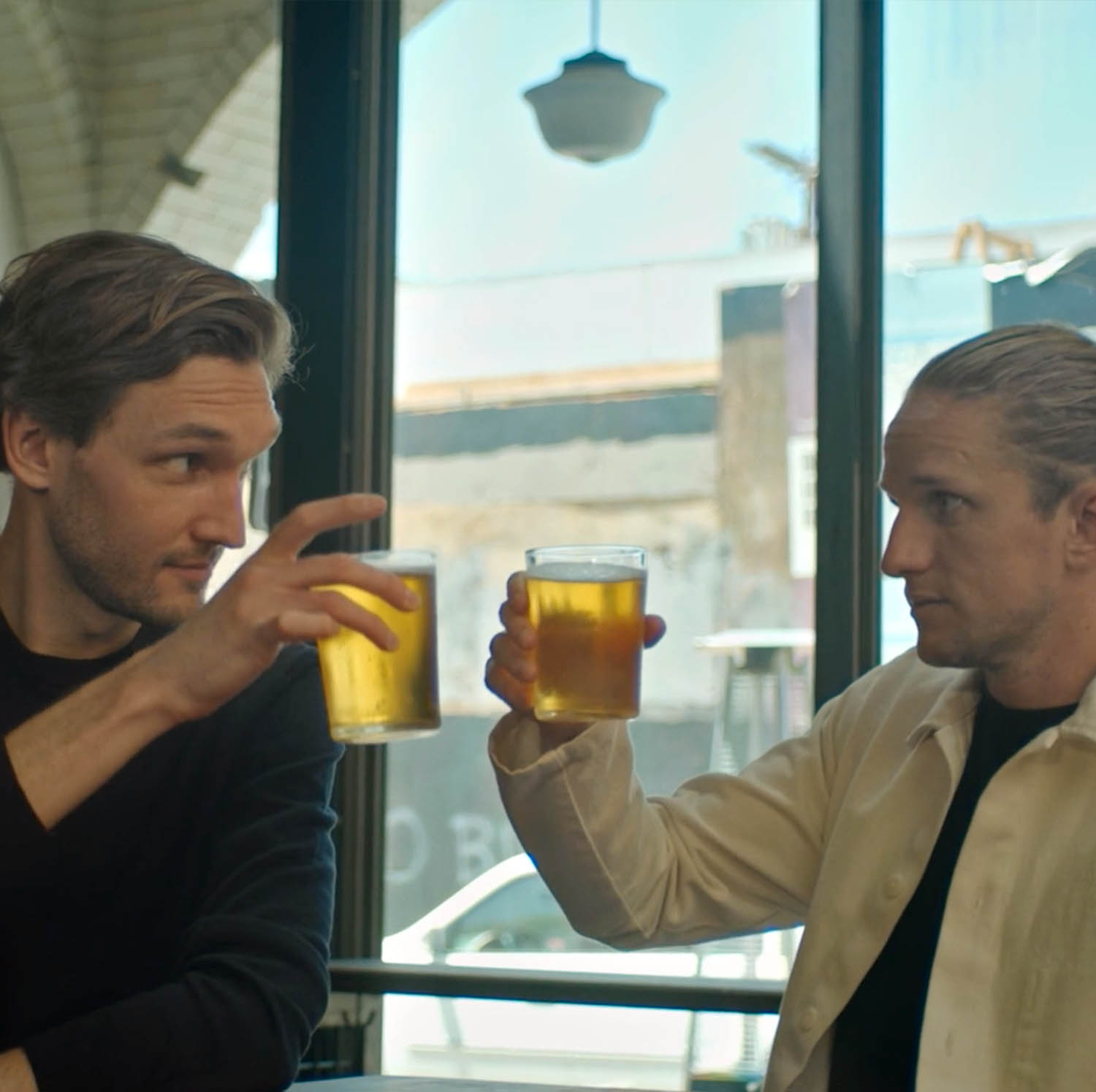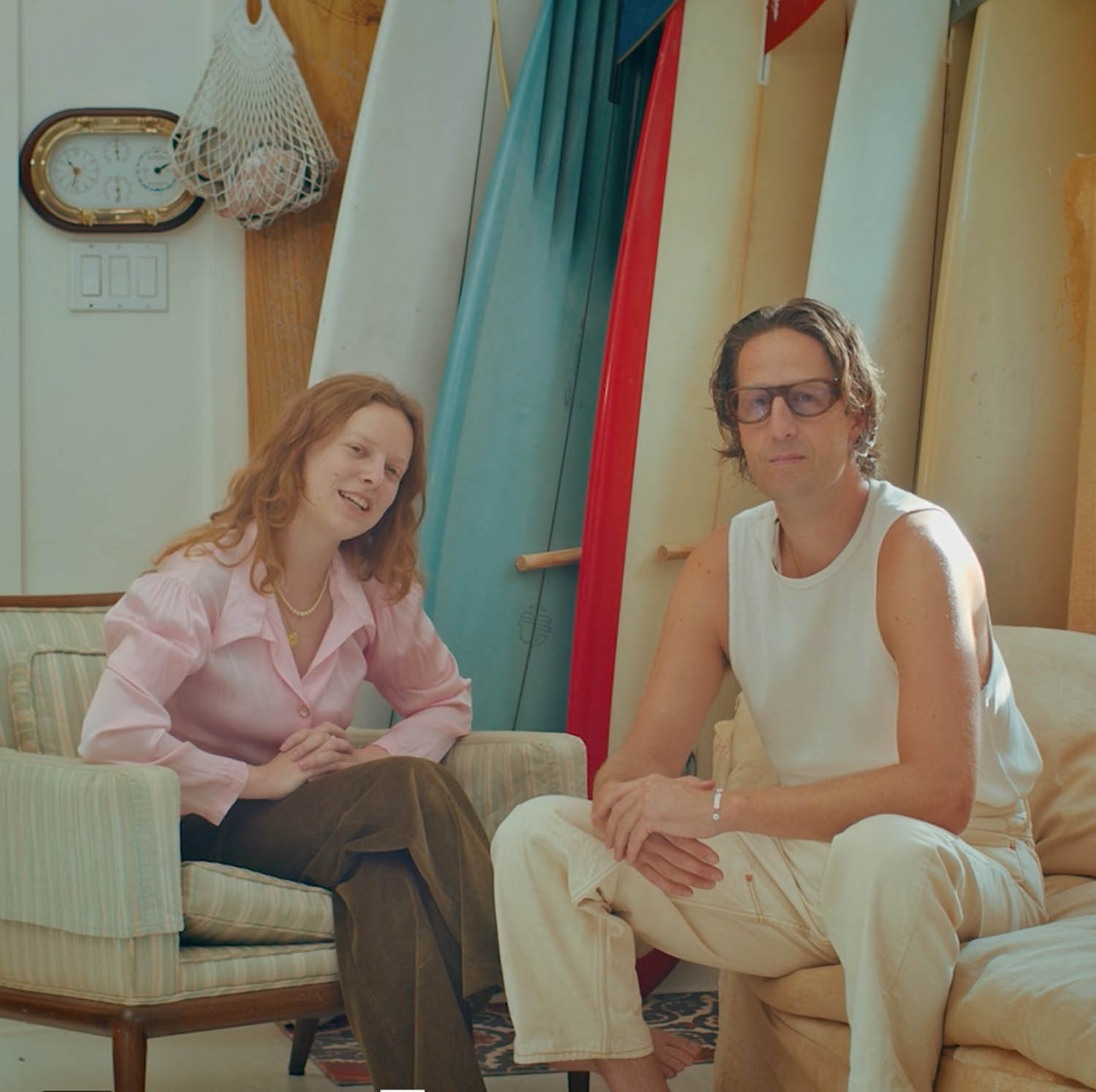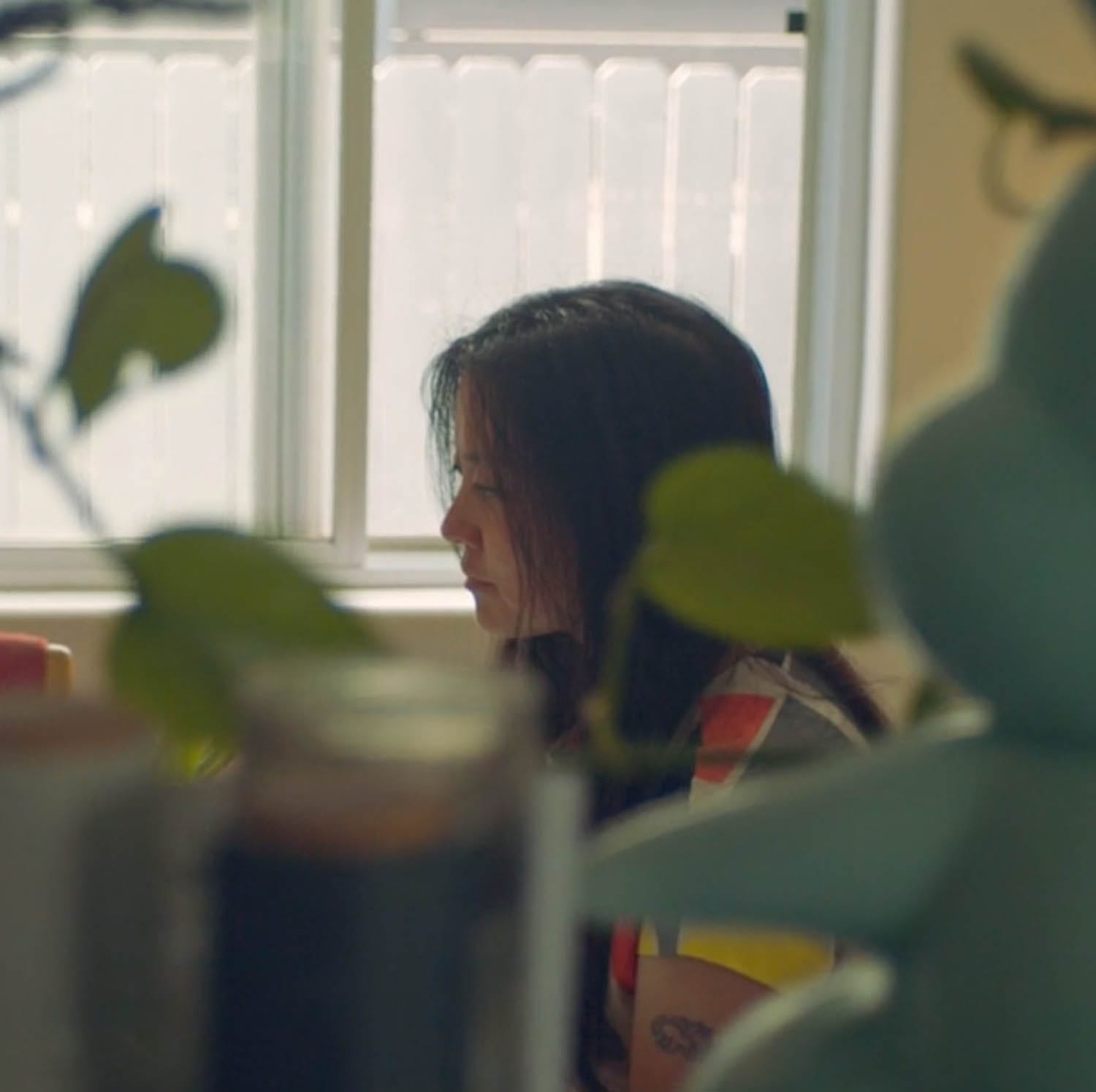David Lee, Chief Creative Officer at Squarespace, moved from New York City to Venice Beach in early 2020, just one month before the pandemic hit. “You get different types of inspiration in New York and LA. The pace changes. LA is a place where ideas get a chance to incubate a little bit. In New York, inspiration kind of smacks you in the face.” But as Lee is quick to acknowledge, great work can come from anywhere or anyone — and as a global platform that enables anyone to design their own corner of the internet, Squarespace is proof of that.
As for his own team — the creatives tasked with the job of inspiring other creatives — Lee feels there’s a certain magic that can only happen in person. “You want to meet other creative individuals, get inspiration from other industries, other categories, because if you’re just looking two inches in front of your face, the ideas end up being the same.” So while Squarespace has a major footprint in New York City, and works with creatives all over the world, Lee and his team of 15 chose NeueHouse Venice Beach as the home base for their satellite creative studio. As we prepare to open the doors of the house to members, we invited Lee over for a chat about his creative vision and where the future of creative entrepreneurialism in digital space is heading.
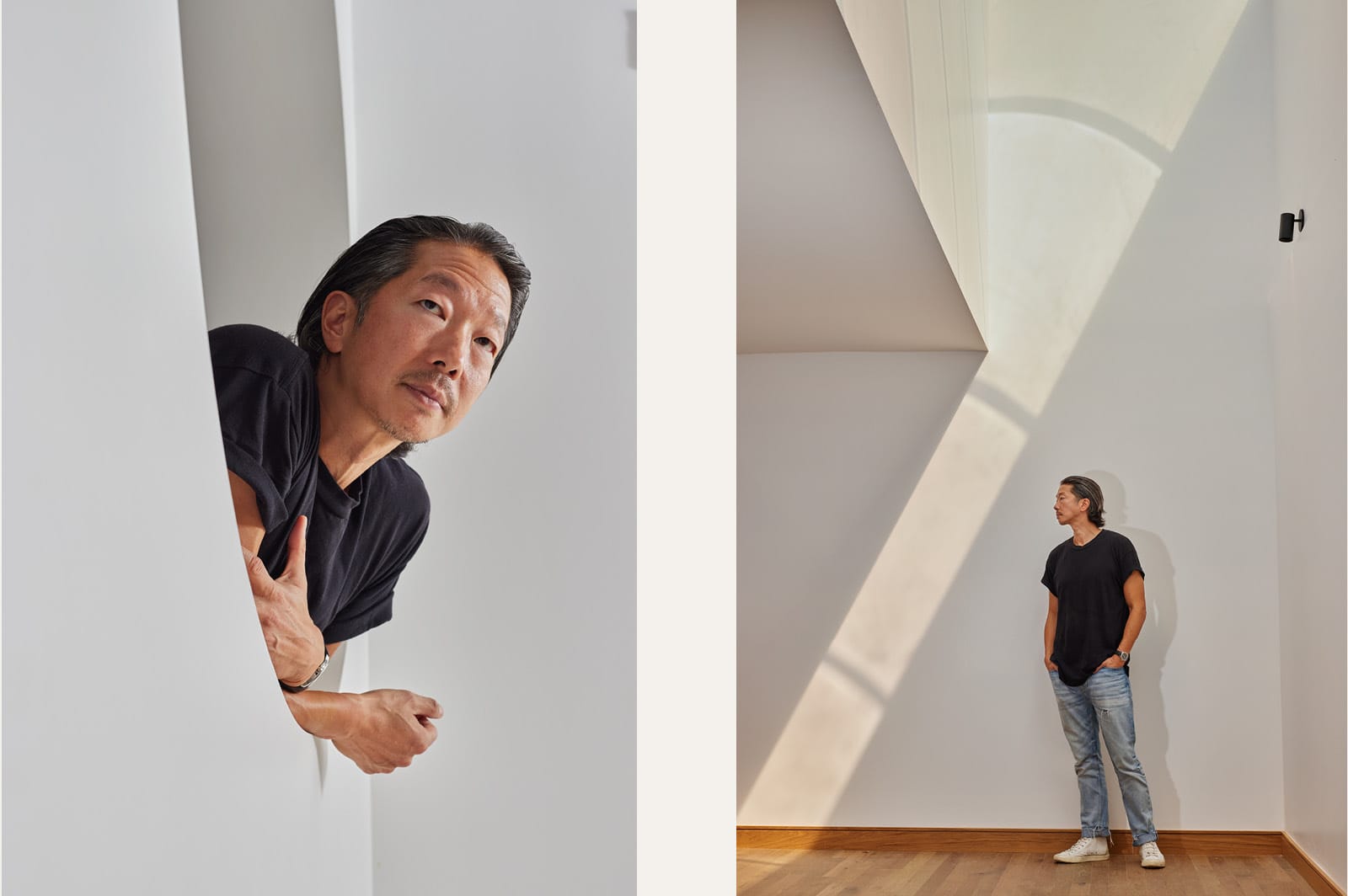
NEUEJOURNAL: You’re in the business of encouraging people to imagine spaces they’ve never seen before—their own websites. How do you do that?
DAVID LEE: Squarespace is a blank canvas for someone else’s story. There are a lot of beautiful, thoughtful, and amazing things that people are making, and a lot of very weird, odd, and random things too. A lot of what we do to inspire others is mine for those amazing things our customers are already doing and put that through a megaphone out to the world.
NEUEJOURNAL: Why do you think it’s still important for people to come together in physical spaces?
DL: We are social beings by nature. From the most introverted person to the most extroverted person, you need to find a way to engage with other humans. That said, I’m a believer in a flexible work culture. I don’t believe you have to be doing a nine-to-five job and be in an office 24/7. A big part of the reason we shifted from having our own bespoke office to Neuehouse is that we’re not just connecting with people from our own company. You want to be around other likeminded individuals. You want to meet other creative individuals. I’m a big believer in getting inspiration from other industries, other categories, because if you’re just looking two inches in front of your face, the ideas end up being the same.You need better inputs to have better outputs.
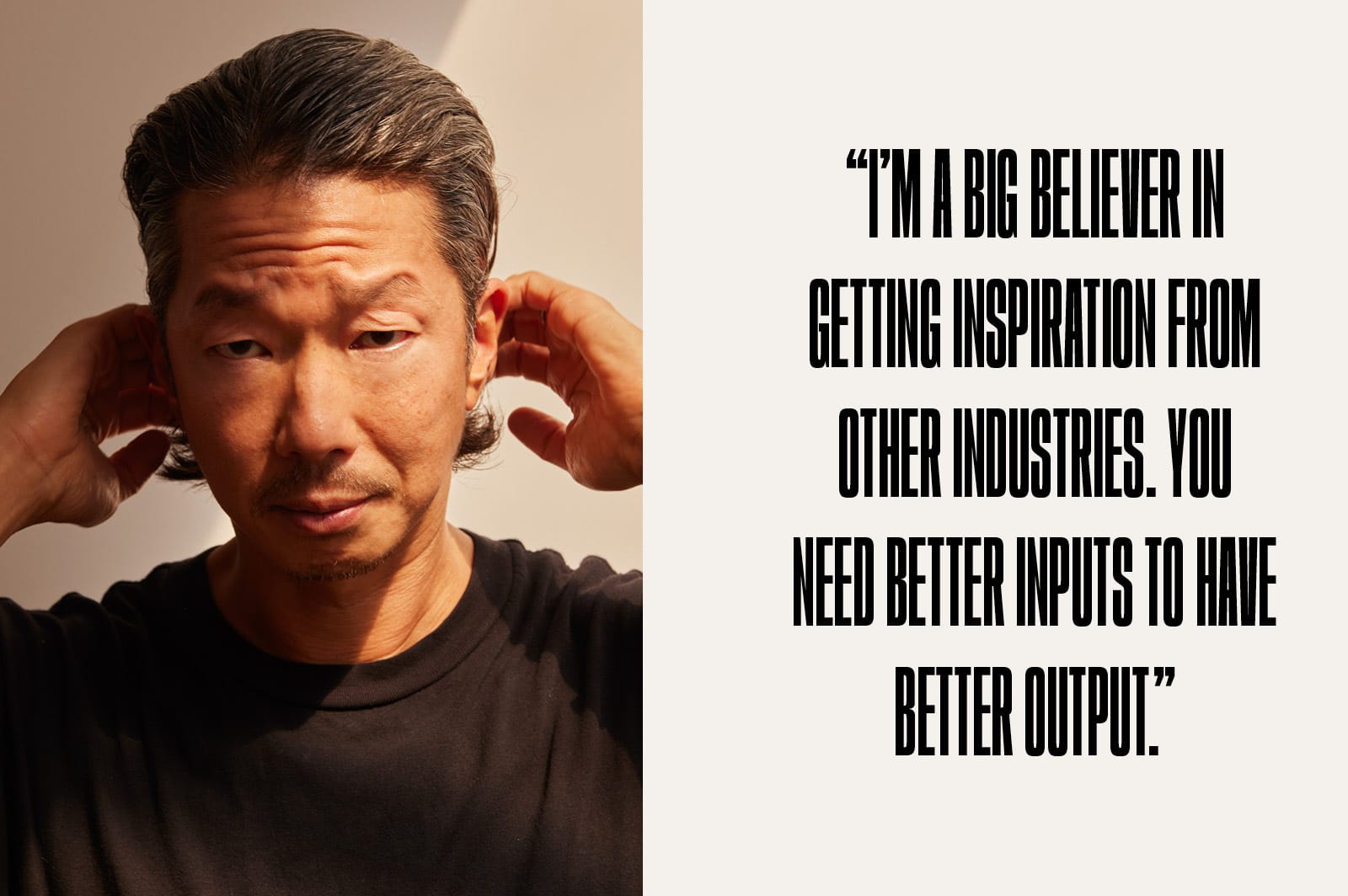
NEUEJOURNAL: Do you have any tips for managing remote creative teams?
DL: I think it comes down to trust. As long as the work is creatively in a place where we’re all still marching toward the same north star, I don’t need to have people in the office just to micromanage and oversee it.
But I like doing creative reviews and briefing things in person. There are certain nuances you can’t get being a thumbnail in a Zoom call. I like getting the team together to bond and to develop a creative culture.
You have to provide a space that allows everyone to thrive. Co-working spaces are a catchall solution — for the person who gets their energy from being around people, there is a place for that. And for the person who wants to be headphones on and needs isolation, they can come in when they need to. I don’t think this is going to change in the near future.
NEUEJOURNAL: Squarespace launched 18 years ago. What do you imagine Squarespace looking like 18 years from now?
DL: Squarespace was founded on the premise that it was really hard to put a website out, so we wanted to make an all-in-one platform that allowed anyone to DIY it. It started as a blogging platform, then we transitioned to portfolios, specifically for the creative class. We reasoned that if you can please creatives, it would be easy to please everyone else.
The next generation is going to be selling more than just physical products. You’re going to sell your time and expertise, you’re going to sell content behind a paywall, you’re going to want to book appointments. The web went from desktop to mobile to social. Then it’s going to augmented reality, then virtual reality and the metaverse, to a decentralized web, to all these different things that we’re on the precipice of. I do think that there is something timeless and permanent about owning your own piece of the Internet. How that changes in the future is going to take many different forms, but I guarantee we’ll be making sure that we’re a part of that.
“The ability to allow people to get out of their house, take off the pajamas for a little bit, and work from the Downtown or Hollywood NeueHouse is interesting. And for people who live on the Westside, the Venice Beach studio is going to be a fantastic place for us to congregate. Venice is rife with inspiration.”
NEUEJOURNAL: Can you talk about why Venice was appealing to you?
DL: Venice has a history steeped in creativity and culture. Back in the 1950s, there were artists, poets, musicians here—skateboarding was invented here. Venice has still got that unique energy and that bohemian arts culture. Now tech has moved in. And you have a lot of film production people—directors, producers, post-production companies. All of the most interesting work that we’ve done at Squarespace sits in the middle of that Venn diagram. That’s why I felt Venice Beach was a good place to call home, and for the headquarters for Squarespace. Venice is rife with inspiration.
NEUEJOURNAL: In these connected times, do you think regionalism still affects creativity and work? Is there a difference between NYC creatives and L.A. creatives anymore?
DL: Yes and no. With the pandemic, there are now creative people all over the country. But I do still think that there are intrinsic differences, especially between New York and L.A. For me, L.A. is like you’re in a constant daydream. It’s a slower, deeper way of absorbing ideas. In New York you’re bombarded with things. It kind of smacks you in the face. I’m starting to see less of a difference in terms of the work output and ideas.
But I am seeing a different process in how you get to those ideas. The way you get from point A to B all the way to C is really different between New York and L.A.
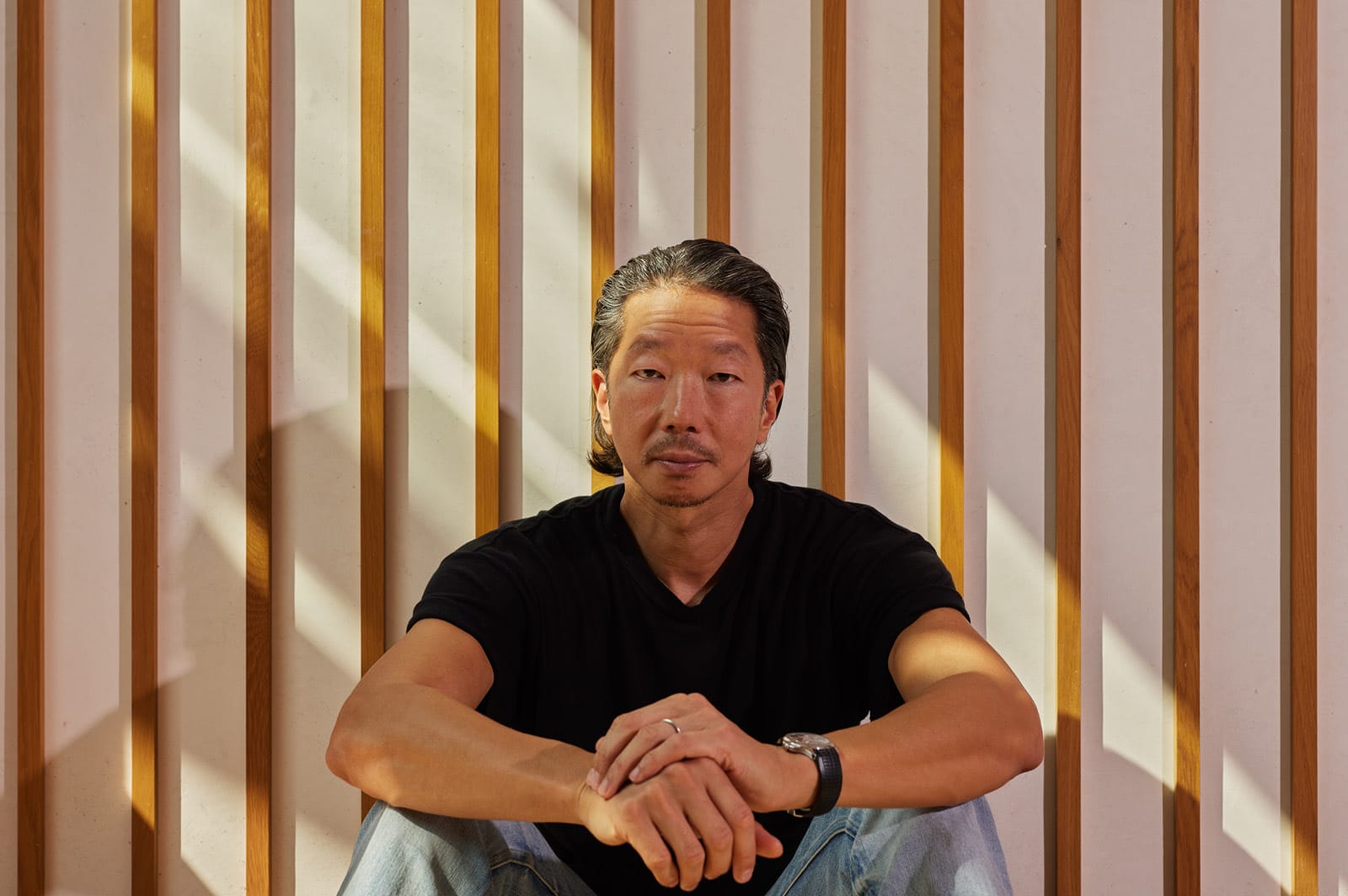
NEUEJOURNAL: If you’re one of the people who is going back and forth from New York to Los Angeles, what’s the secret to staying fresh and sane when you’re on the move?
DL: I kind of need both to keep me on my toes. The way I explain it is New York is for the hustlers of the world; L.A. is for the dreamers. There is a competitive drive and a work ethic in New York. And the big thing that New York has, that I love, is serendipity. There’s this creative energy where you’ll just bump into someone on the street and then completely go off on a tangent from what your day was supposed to be. L.A. is a little bit more like you have to schedule things. You have to pre-meditate things a little bit more. L.A. is in a different gear. It’s a place where ideas get a chance to incubate a little bit. You get to dream and think about things and let them marinate a little bit more.
NEUEJOURNAL: Do you have any habits or creative secrets that you’d recommend to somebody else?
DL: I think self-awareness is key. I am a very goal-oriented person. I believe in creativity and constraints, and in setting markers and goals. Whether it’s something small that you need to do by the end of the day or it’s something you want to learn by the end of the week, or somewhere you want to go in your career— it won’t happen unless you start to visualize it. If you can visualize where you want to be and set goals, the hard work will come without being forced.
NEUEJOURNAL: When you’re in Los Angeles, what do you like to do that you can’t do in New York?
DL: Honestly, for me, I feel like I’m a better human being here. Maybe it’s the weather, maybe it’s just being able to be outdoors. I love going for a stroll, or a run on the beach, or a walk through the canyon, it’s something unique that you can’t get living in Manhattan.
“There’s no interaction with someone that’s a waste. Absorb as much from every single person that you meet, whether it’s your boss, your manager, or a client, or a random person you speak to at a hotel bar.”
NEUEJOURNAL: Last question — where do you like to eat?
Ah, the food question! In Venice we’re a little bit spoiled. There are so many great restaurants. There are some hole-in-the-wall places, like there’s a place on one of the side streets right off the Boardwalk with some of the best Peruvian food I’ve ever had. Market Venice, which is new to the scene and right across from NeueHouse, has also become a go-to for me. And you’ve got Felix, you’ve got Gjelina, Gjusta, Gran Blanco, Belles Beach House, all these different restaurants and great coffee places. —there are tons of restaurants left, right, and center—it’s one of the reasons we ended up at Neuehouse in Venice.
